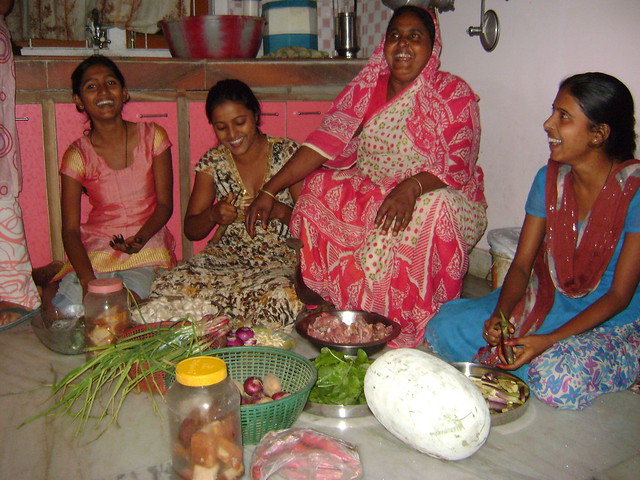By Anjuman Ara Begum, TwoCircles.net
‘Usually I work the whole day and there is always no time for me to go out of the kitchen on the day of Eid’, said Mumtaz Begum when asked about how she celebrates Eid. She is 38 years old and mother of three children and is living in Sonapur, Guwahati, Assam. Her husband remains out the house whole day to meet family and friends and she has to look after the guests on the day of Eid. What adds misery to Mumtaz is that even her house maid will not there to help her as the maid takes leave to celebrate Eid with her family. Among the guests who visit the family, Mumtaz said, are mostly her husband’s friends, family members and neighbours. Apart from these she also entertains a lot of first time guests looking for a good meal that Mumtaz loves to provide to the marginalized community of her village.
Sahana Parvin, an MBA working in a corporate house in Guwahati too has hardly any time for herself. She says, ‘I came back from office at 6 PM on the day before Eid. I am tired and still spent most of the time in the evening and at night making sweets and other delicacies for the next day Eid celebration. I hardly get time to take proper rest and will get no time to meet friends on the day of Eid as I will be busy in the kitchen.

A Muslim family on Tuesday in Guwahati, Assam enjoys a laugh while preparing a dish for Eid.
Most of the celebrations in Muslim culture don’t represent women’s participation. The pictures of Eid celebration reported in media mainly are the joyful moment of men wishing each other in the Idgah field or young boys hugging each other or men offering prayers but unfortunately women don’t figure in such representations. The mosques and other religious places are decorated for the Eid celebration but without any women contributations.
Arzuman Ara, from Shillong who donated mattress worth Rupees 3000 for a Idgah field for people to offer Eid prayer comfortably regrets that no woman will be praying over this mattresses though she feels blessed that people will use the mattresses for prayers. She says, ‘we are forced to accept the patriarchal system that look down upon women’s participation in celebration and confine them in the domain of household chores. Although we want a change but it will take time to see more women participating in celebration outside the domain of the household or the kitchen. Awareness among women, cooperation from men and a change in the social outlook is essential to provide little space to women to celebrate the festive mood’, she added. Idgahs in this region have no space for women folk to come and offer prayers.
Women are also entitled to share a joyful moment on the day of Eid. Many women feels that men should be little considerate of their female counter parts and cooperate to share the household chores such that the joy of Eid becomes more joyful for all, not only of men.
